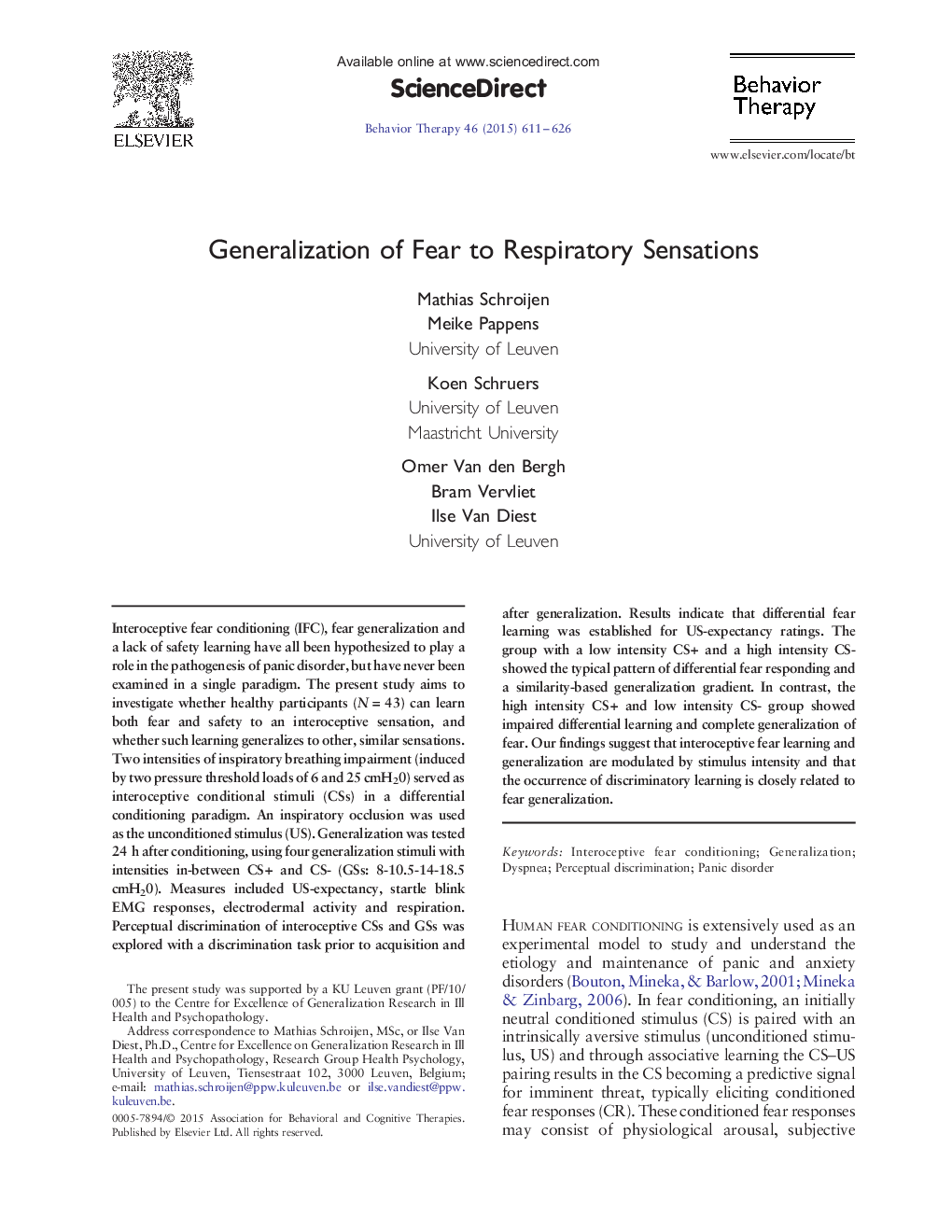| Article ID | Journal | Published Year | Pages | File Type |
|---|---|---|---|---|
| 901161 | Behavior Therapy | 2015 | 16 Pages |
•Interoceptive fear generalization occurs to respiratory sensations•Respiratory stimulus intensity modulates discriminatory learning of fear•Impaired discriminatory learning relates to stronger generalization of fear
Interoceptive fear conditioning (IFC), fear generalization and a lack of safety learning have all been hypothesized to play a role in the pathogenesis of panic disorder, but have never been examined in a single paradigm. The present study aims to investigate whether healthy participants (N = 43) can learn both fear and safety to an interoceptive sensation, and whether such learning generalizes to other, similar sensations. Two intensities of inspiratory breathing impairment (induced by two pressure threshold loads of 6 and 25 cmH20) served as interoceptive conditional stimuli (CSs) in a differential conditioning paradigm. An inspiratory occlusion was used as the unconditioned stimulus (US). Generalization was tested 24 h after conditioning, using four generalization stimuli with intensities in-between CS + and CS- (GSs: 8-10.5-14-18.5 cmH20). Measures included US-expectancy, startle blink EMG responses, electrodermal activity and respiration. Perceptual discrimination of interoceptive CSs and GSs was explored with a discrimination task prior to acquisition and after generalization. Results indicate that differential fear learning was established for US-expectancy ratings. The group with a low intensity CS + and a high intensity CS- showed the typical pattern of differential fear responding and a similarity-based generalization gradient. In contrast, the high intensity CS + and low intensity CS- group showed impaired differential learning and complete generalization of fear. Our findings suggest that interoceptive fear learning and generalization are modulated by stimulus intensity and that the occurrence of discriminatory learning is closely related to fear generalization.
